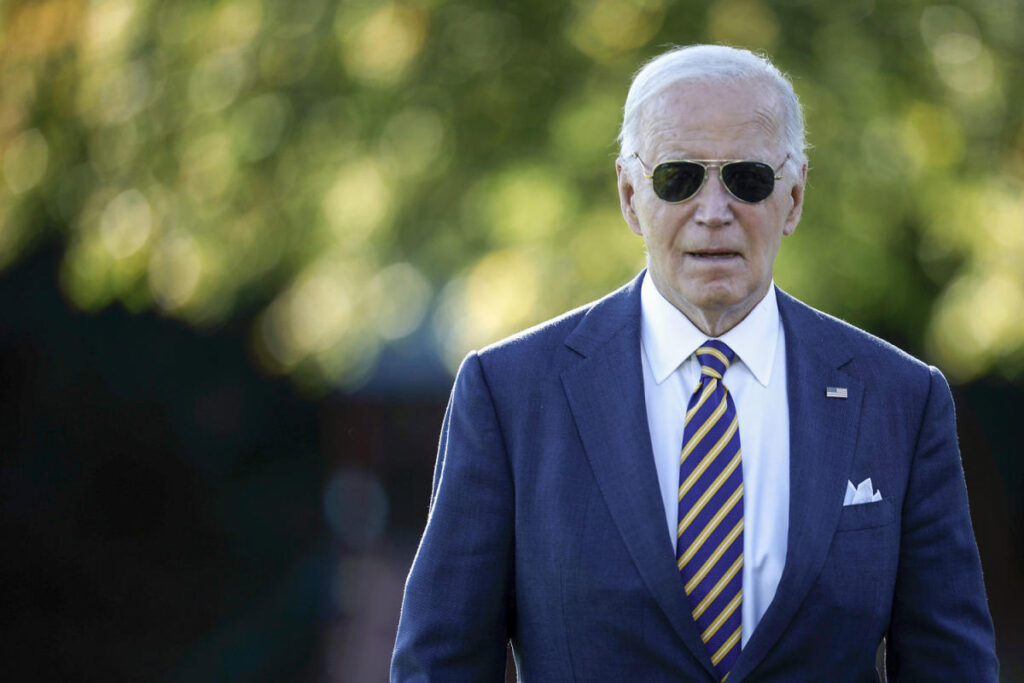President Joe Biden is poised to deliver a formal apology on Friday concerning the U.S. government’s historical boarding school system that forcibly separated Native American children from their families for generations. His journey to the Gila River Indian Community in Arizona emphasizes the significance of acknowledging past injustices against Native nations. Biden stated his intent to rectify a long-overdue acknowledgment of the mistreatment faced by Indigenous children, reinforcing his commitment to collaborate with Native communities. Joining him are influential figures like Interior Secretary Deb Haaland, the first Native American Cabinet secretary, who has personal ties to the boarding school trauma, and Deborah Parker of the National Native American Boarding School Healing Coalition.
Secretary Haaland highlighted the hidden horrors of the boarding school era, which persisted largely unrecognized in mainstream history. She referred to Biden as “the best president for Indian Country in my lifetime,” anticipating that his formal apology would resonate deeply with Indigenous communities and contribute to a broader reckoning with historical grievances. The boarding school system has not only caused personal harms but also contributed to the systemic erasure of Native languages and cultures across generations. This apology, therefore, comes not only as an acknowledgment of suffering but also as a call for meaningful reparative action to support language preservation and cultural reclamation initiatives.
The historical context surrounding the boarding school era is marked by policies instituted from 1819 through at least 1969, which aimed at the forced assimilation of Indigenous, Alaskan Native, and Native Hawaiian children. Many of these children endured severe abuse within these institutions, and tragically, a significant number died while in attendance. Secretary Haaland launched a vital initiative in June 2021 to investigate and shed light on this tragic legacy. The initiative has uncovered critical information regarding the systemic trauma inflicted by these schools and the enduring impact on Native communities.
Initial findings from Haaland’s investigation revealed the harrowing extent of the boarding school system, which encompassed 417 institutions across 37 states or former territories. The data indicates that at least 973 Indigenous children died in these schools, situating this apology within a larger narrative of institutional violence faced by Native peoples. The release of a second volume of the investigative report earlier this year further established the need for federal acknowledgment of the injustices perpetrated and called for an enduring response from the government in the form of a national memorial and a formal apology.
The apology is seen as a significant moment for Native communities, with leaders like Cherokee Nation Principal Chief Chuck Hoskin Jr. stating it is a “long-overdue” acknowledgment of the profound pain caused by the boarding school policies. Hoskin emphasized that the recognition of this dark chapter in U.S. history must lead to continued action that actively supports the revitalization of Native languages and aids in the repatriation of ancestral remains and cultural artifacts. The sentiments expressed by Native leaders reflect a collective hope that this formal acknowledgment will transcend words and trigger meaningful changes in policy and support systems for Indigenous peoples.
As Biden prepares to issue this formal apology, it marks a crucial step toward confronting and reconciling with a past that has long been obscured. This initiative underlines a broader commitment to rectify historical inequalities and foster healing within Native communities. The anticipated national memorial and reparative actions proposed in the investigative reports serve as a foundation for a more equitable relationship between the U.S. government and Indigenous nations, setting a precedent for future efforts aimed at reconciliation and healing in the wake of centuries of trauma inflicted through colonial policies. Such endeavors are imperative not only for honoring the memories of those affected by the boarding school system but also for restoring cultural identities and community resilience among Native peoples.

